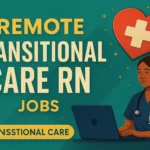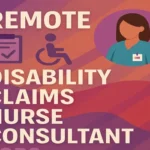Description
Frequently Asked Questions (FAQs)
1. How does a Chief Nursing Officer contribute to shaping telehealth strategy in a virtual-first healthcare model?
As a Telehealth CNO, you're at the helm of clinical innovation, designing and executing comprehensive virtual care strategies that integrate nursing leadership with digital health platforms. You bridge traditional nursing practice with emerging technologies, ensuring compliance, operational efficiency, and compassionate care delivery at scale.
2. What are some unique challenges in managing a remote nursing workforce across multiple time zones and care levels?
Coordinating care delivery in a virtual environment involves logistical complexities such as maintaining consistent communication, aligning schedules across time zones, and ensuring clinical standardization. The CNO is responsible for implementing frameworks that promote collaboration, accountability, and seamless patient experiences regardless of location.
3. In what ways is clinical innovation supported and advanced in this executive role?
Clinical innovation is driven by piloting new models of care, incorporating AI-powered decision-making tools, and streamlining virtual workflows to enhance patient care. The CNO evaluates emerging technologies, guides the integration of digital solutions into clinical practice, and leads data-informed initiatives to continuously refine patient care.
4. How does this role influence interdisciplinary collaboration within the organization?
As the nursing executive voice, the CNO collaborates closely with leaders in IT, product development, compliance, and human resources. This role ensures that nursing perspectives are represented in strategic decision-making, platform design, and operational alignment, fostering a unified and patient-centric healthcare ecosystem.
5. What opportunities exist for professional growth and impact in this position?
Beyond financial rewards and executive visibility, the CNO role offers engagement in industry-shaping discussions, access to leadership development programs, and the opportunity to redefine national standards for remote nursing. This position empowers leaders to drive change, influence public health policy, and elevate nursing within the digital care landscape.




